|

HOME |
ABOUT | INDEX |
NEWS |
FACEBOOK |
CONTACT
QUESTIONS
Inquiry | Information | Frequently Asked
Frequently Asked
Questions
Question: What is
homosexuality?
Answer:
Homosexuality is the capacity to feel love and sexual
satisfaction with someone of the same gender. Typically
people think that is unnatural and not normal. This is
not the case. Little research has been done to indicate
what reason might be associated with being gay.
Question:
What causes homosexuality?
Answer:
The actual facts that determine sexual orientation are
not known. Most researchers believe that one’s basic
sexual orientation is predisposed at birth or
established at a very early age. While these primary
affectional inclinations may not be recognized or
acknowledged for many years, once established, they tend
not to change substantially. Some believe that it might
be genetic meaning that it is inherited. Others think it
might have something to do with chemistry of the baby in
the womb.

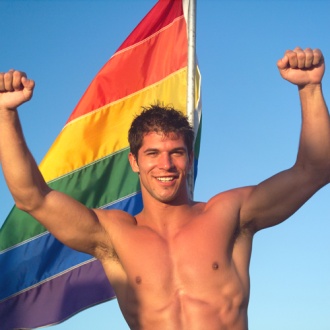
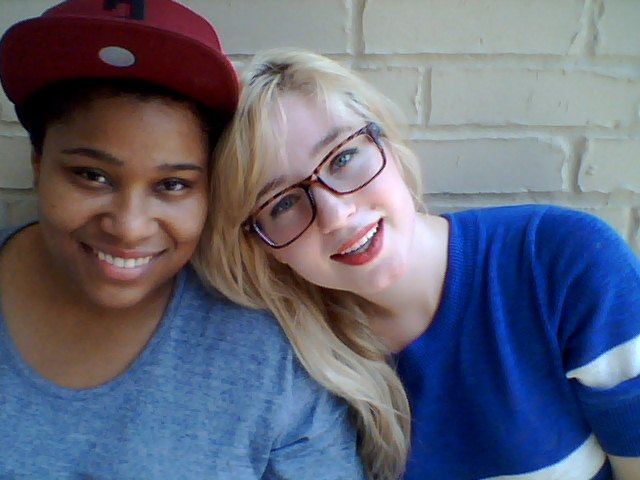
PFLAG:
Frequently Asked Questions About LGBTQ
UN Human Rights: Frequently Asked Questions About LGBTQ
Advocates for Youth: Frequently Asked Questions About
Sexual Orientation
Georgia and Kera: Questions with Queers
Info: Myths and Misconceptions About LGBTQ People
Video: Sexual Orientations Explained
Question: How many gay men and lesbians are there?
Answer:
The Kinsey Institute research, conducted in the 1940’s
and 1950’s, suggests that approximately, depending on
location, that 10% of the population is lesbian or gay.
Though some researchers believe this estimate to be too
high or too low, it is safe to assume that lesbians and
gay men constitute a significant minority group.
Consequently, even though we may not be aware of their
sexual orientation, most of us know someone who is
lesbian or gay. The vast majority of lesbians and gay
men remain “in the closet” and reveal their
sexual orientation to only a few trusted friends.
Question: When do
gay men and lesbians first know?
Answer:
There is no set age at which a person becomes aware that
he or she is lesbian or gay. Some LGBTQ people become
aware of their sexual orientation during adolescence.
Because of the strong sexual societal pressure to be
heterosexual, however, some people do not realize that a
heterosexual lifestyle does not meet their needs or
feelings until later in life, perhaps even after they
have been married for years.
Info: Myths and Misconceptions About LGBTQ People
PFLAG:
Frequently Asked Questions About LGBTQ
LGBTQ Trivia Quiz
Sexual Orientation Video: Is It a Choice?
UN Human Rights: Frequently Asked Questions About LGBTQ
Info: Terminology and Definitions
Advocates for Youth: Frequently Asked Questions About
Sexual Orientation
My LGBTQ Plus: Frequently Asked Questions
Sexual Orientation Guide: Am I Gay?
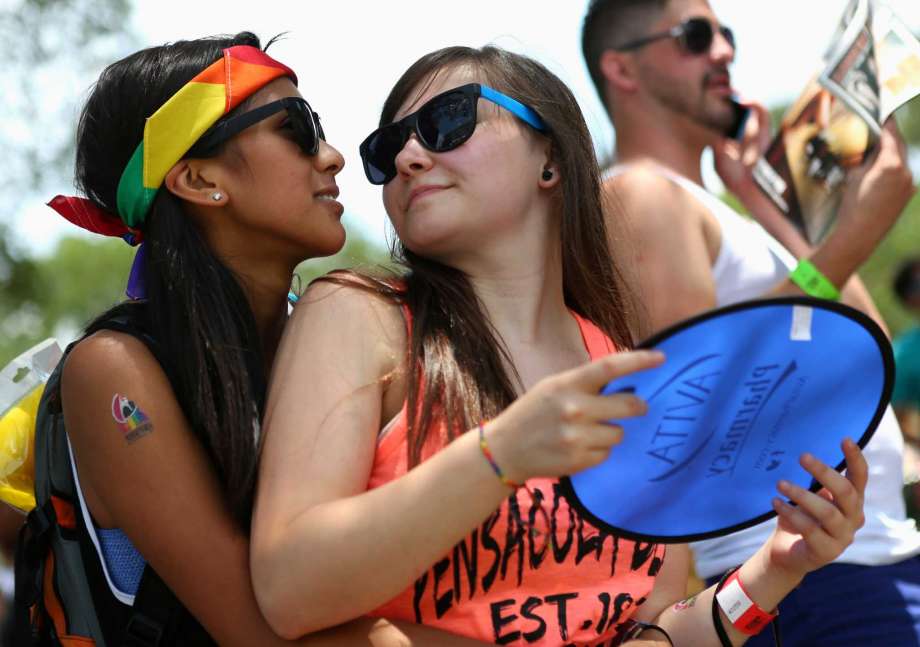

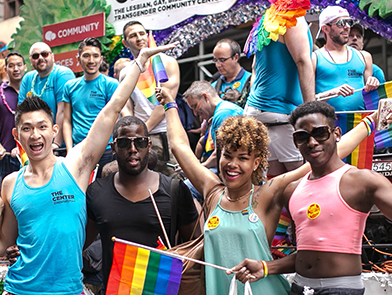
Question: Can you
tell if people are gay or lesbian by their appearance?
Answer:
No. Lesbians and gay men are as varied in their dress,
mannerisms, and styles as are heterosexuals. Despite
this diversity, many stereotypes persist about the
effeminate man or the masculine woman. Although some gay
people adopt those styles, the overwhelming majority of
lesbians and gay men do not conform to these
stereotypes, and their sexual orientation is invisible
to the general public. We only “see” those who conform
to our stereotypes. People who dress in the clothing of
the opposite sex are transvestites. The vast majority of
transvestites are heterosexual, not lesbians or gay men.
Question:
Do lesbians and gay men hate the opposite sex?
Answer:
No. Lesbians are lesbians because they form loving
relationships with women, and gay men are gay men
because they form loving relationships with men, and
neither forms these relationships because they hate the
other gender. Many lesbians have close male friends and
many gay men have close women friends.
Question: Do
lesbians and gay men want to be the opposite sex?
Answer:
No. Lesbians and gay men do not want to be the opposite
sex. Within in the gay community, there are many who
have challenged and discarded stereotypical sex roles
but this does not mean that they want to be the other
gender. Gayness involves celebration and affirmation of
one’s gender, not a rejection of it.
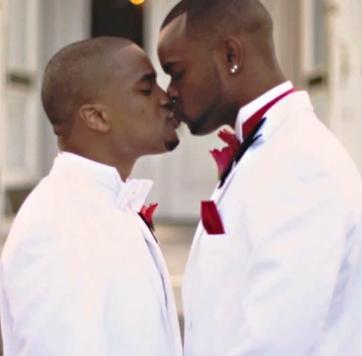


PFLAG:
Frequently Asked Questions About LGBTQ
Video: Sexual Orientations Explained
LGBTQ Trivia Quiz
UN Human Rights: Frequently Asked Questions About LGBTQ
Info: Terminology and Definitions
For Anyone Who's Been Told It's Just a Phase
Advocates for Youth: Frequently Asked Questions About
Sexual Orientation
Info: Myths and Misconceptions About LGBTQ People
My LGBTQ Plus: Frequently Asked Questions
Video Explanation: Sexual Orientation, Gender Identity,
Gender Expression
Question: Is
homosexuality healthy?
Answer:
Studies have shown that people’s sexual orientation has
no bearing on their mental and emotional stability. In
one landmark research project, mental health
professionals were unable to distinguish between
homosexuals and heterosexuals in terms of functionality,
stability, and creativity. In 1973, the American
Psychiatric Association removed homosexuality form the
official listing of psychiatric disorders.
Question:
Is homosexuality immoral?
Answer:
Many religious traditions have taught and some continue
to teach that homosexuality is immoral. These
condemnations are based primarily on few isolated
passages from the bible. Historical, biblical passages
taken out of context have been used to justify such
things as slavery, in inferior status of women, and the
persecution of religious minorities. In recent years,
many theologians and clergy have begun to look at sexual
relationships in terms of the love, mutual support,
commitment, and the responsibility of the partners
rather than the gender of the individuals involved.
Currently, there are many gay and lesbian religious
groups and religious congregations that are open,
accepting, and supportive of the gay community.
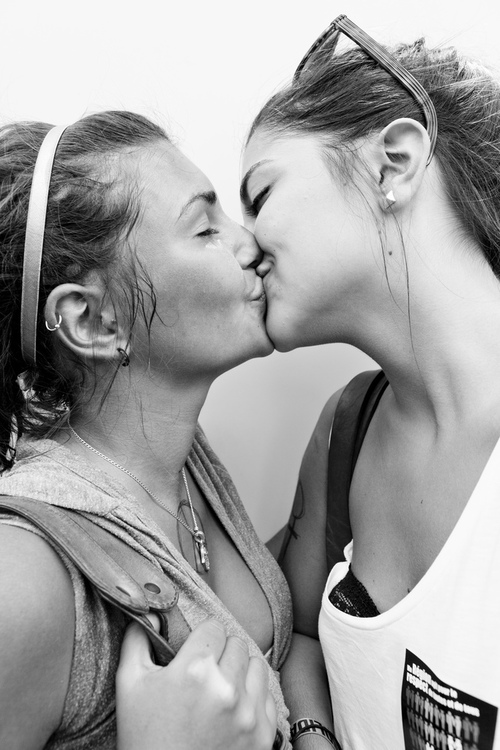
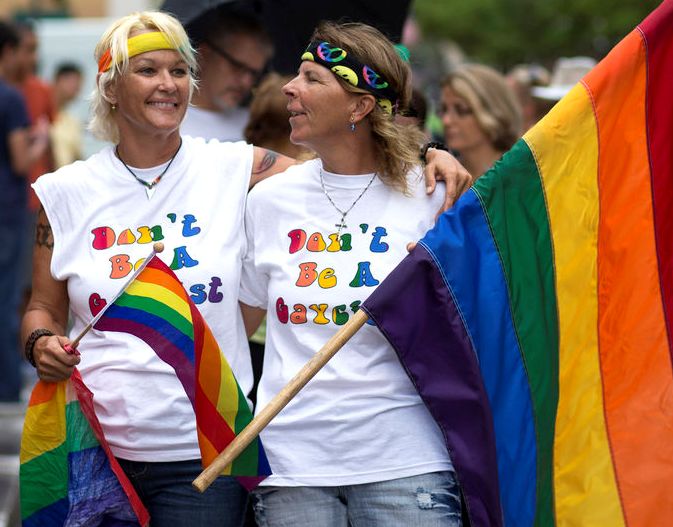

Question: Is being
gay “natural”?
Answer:
Each culture defines what is “natural” or “normal” to
fit its own context and these definitions differ.
Historians tell us that homosexuality has existed since
the earliest of human societies. Anthropologists report
that lesbians and gay men have been part of every
culture, that in many cultures bisexuality is the norm,
and that in some societies homosexuality is very common.
Lesbians and gay men are represented in every
socioeconomic class, educational level, and race. It is
often said that homosexual behavior is not natural
because the purpose of sex should be reproduction. In
addition to the fact that most heterosexual encounters
are not intended to produce children, homosexual
relationships, like heterosexual relationships, consist
of more than just sexual encounters. A homosexual
identity involves both an emotional commitment to people
of the same gender and membership in a community.
Info: Terminology and Definitions
PBS: LGBTQ America by the Numbers
Video: LGBTQ Facts to Celebrate
PFLAG:
Frequently Asked Questions About LGBTQ
LGBTQ Trivia Quiz
UN Human Rights: Frequently Asked Questions About LGBTQ
Advocates for Youth: Frequently Asked Questions About
Sexual Orientation
Demographics: How Gay is America?
My LGBTQ Plus: Frequently Asked Questions
Info: Myths and Misconceptions About LGBTQ People
Sporcle: LGBTQ Trivia Quizzes and Games
Kinsey Institute: Who Are These LGBTQ Americans?
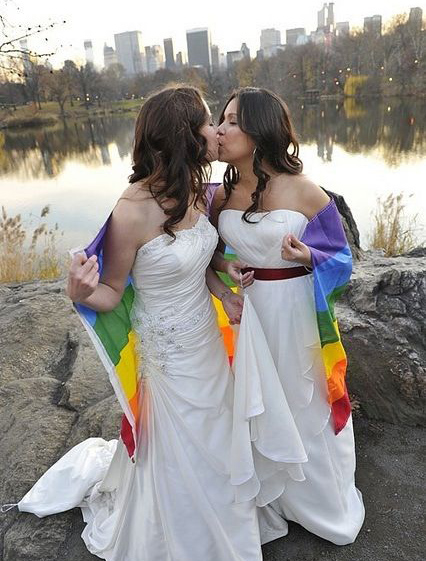
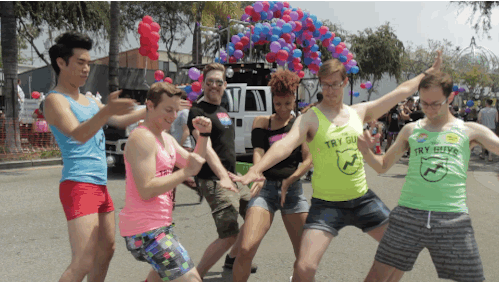

LGBTQ Trivia Quiz
Sexual Orientation Video: Is It a Choice?
Info: Terminology and Definitions
My LGBTQ Plus: Frequently Asked Questions
Sexual Orientation Guide: Am I Gay?
For Anyone Who's Been Told It's Just a Phase
Video Explanation: Sexual Orientation, Gender Identity,
Gender Expression
Question: Do gay men
and lesbians have long-lasting relationships?
Answer:
Yes, long-standing relationships are common. The
difficulty when compared to heterosexual relationships,
however, is that society and the family (for the most
part) disapproves of homosexuality. This disapproval
puts an extra strain on gay and lesbian relationships,
which also have to cope with common stresses that affect
all couples.
Question:
Should gay men and lesbians be barred from certain jobs?
Answer:
Sexual orientation does not affect one’s job
qualifications. Unfortunately, some people believe that
gay men and lesbians should not be allowed to hold
certain positions such as teacher, foster parent,
soldier, counselor, religious leader, or police officer.
They fear that gay men and lesbians are sexually
irresponsible and less trustworthy than heterosexuals.
In fact it is well documented that the overwhelming
majority of those who molest children are heterosexual
men. These beliefs, like those who used to discriminate
against people on the basis of race, ethnicity,
religion, physical ability or gender, are based on
prejudice arid ignorance rather than on accurate
information.
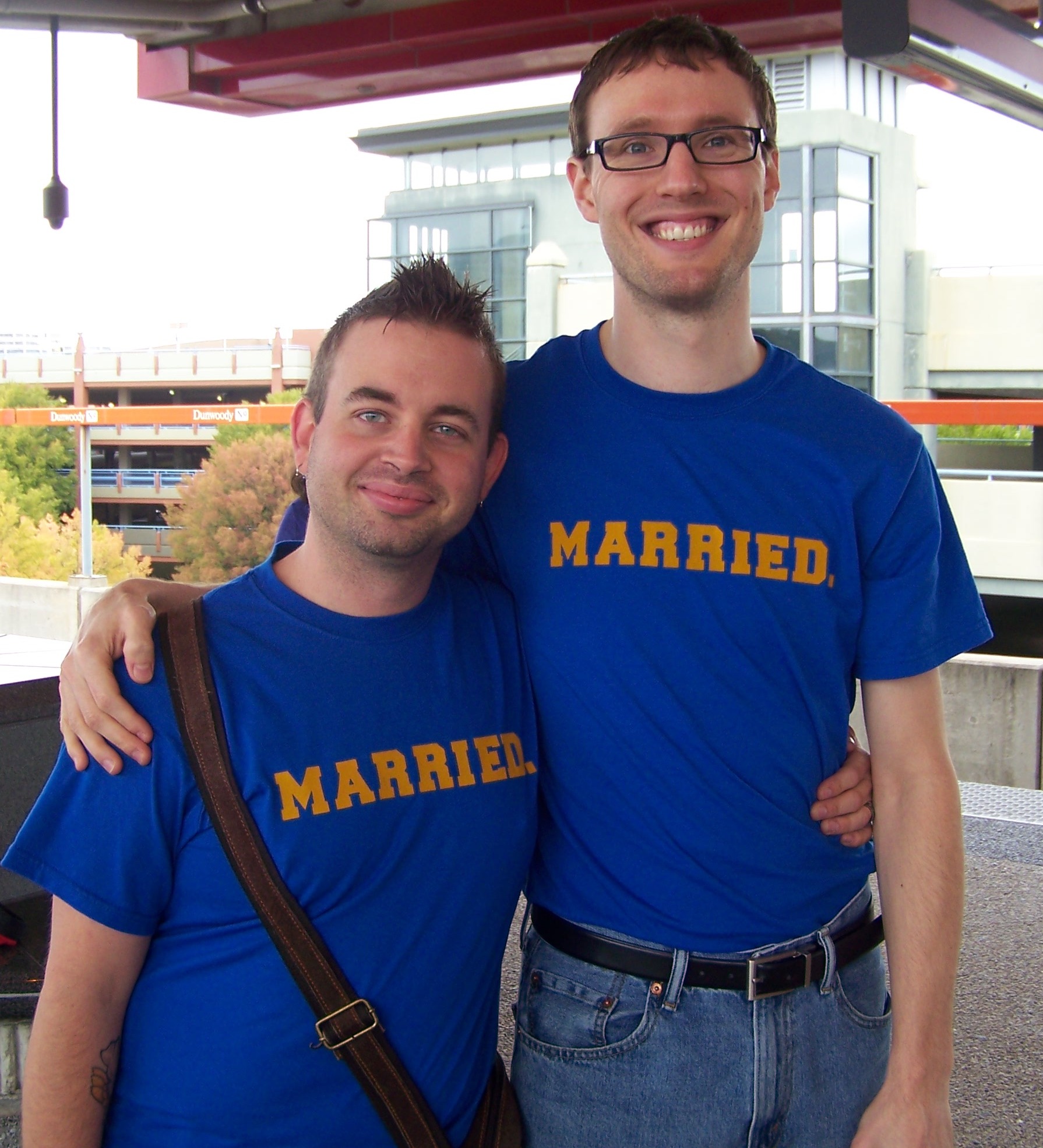
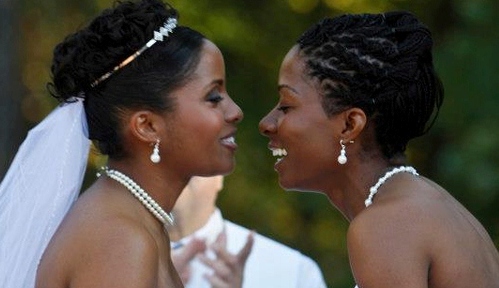
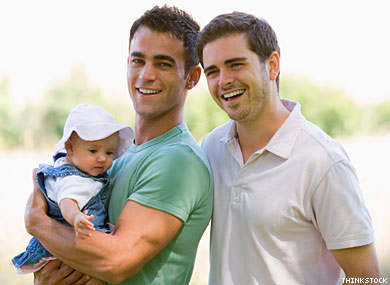
PFLAG:
Frequently Asked Questions About LGBTQ
Info: Terminology and Definitions
UN Human Rights: Frequently Asked Questions About LGBTQ
Advocates for Youth: Frequently Asked Questions About
Sexual Orientation
Info: Myths and Misconceptions About LGBTQ People
My LGBTQ Plus: Frequently Asked Questions
LGBTQ Trivia Quiz
Question: Won’t gay
parents make their kids gay?
Answer:
Research has shown that children of lesbian or gay
parents are no more or less likely to become gay or
lesbian. Most gays and lesbians had heterosexual
parents. Of course children growing up in
non-traditional families may a face a certain amount of
social prejudice, but such challenges can be empowering
of children if they have love and support. Fewer and
fewer children are growing up in two-parent,
heterosexual, nuclear families. Lesbian and gay families
are one of many diverse family types that exist.
Question:
Why do gay people need gay rights laws? Isn’t that
asking for special privileges?
Answer:
Gay rights laws do not give lesbians and gay men special
privileges. On the contrary, gay civil rights laws are
consistent with the traditional American belief that all
people are entitled to such basic necessities as
employment or housing without fear of discrimination.
Currently there is no federal protection for lesbians
and gay men who are discriminated against.
Question: Do homosexuals spread AIDS?
Answer:
No. AIDS is spread by the HIV virus. So for in the US
there are certain groups who have been
disproportionately affected by AIDS, but anyone who
practices unsafe sex or shared needles while using
drugs, is putting themselves at risk. There is another
disease that has been equally virulent, the disease of
AFRAIDS. Those affected by AFRAIDS are misinformed and
blame AIDS on gay men, bisexual men,
people of color, IV drug users, and people from Haiti.
The gay community has been an inspiration to many
because of the courageous and powerful way it has
responded to this human tragedy.
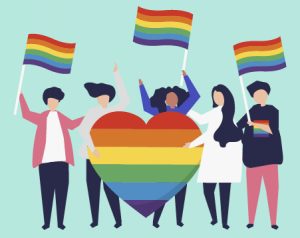
PFLAG:
Frequently Asked Questions About LGBTQ
Info: Terminology and Definitions
UN Human Rights: Frequently Asked Questions About LGBTQ
Advocates for Youth: Frequently Asked Questions About
Sexual Orientation
Info: Myths and Misconceptions About LGBTQ People
My LGBTQ Plus: Frequently Asked Questions
LGBTQ Trivia Quiz
HOME
QUEER CAFE
│ LGBTQ Information Network │ Established 2017 |